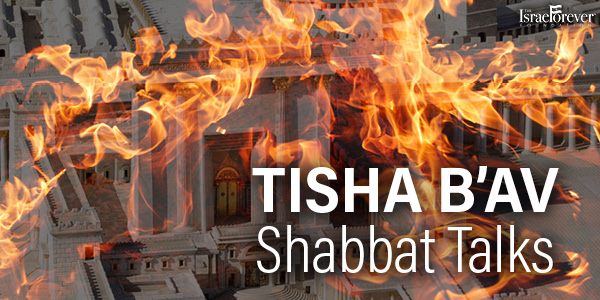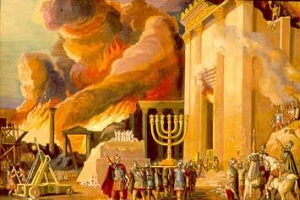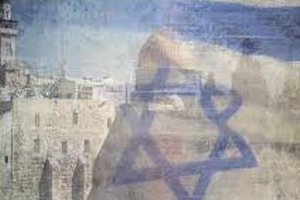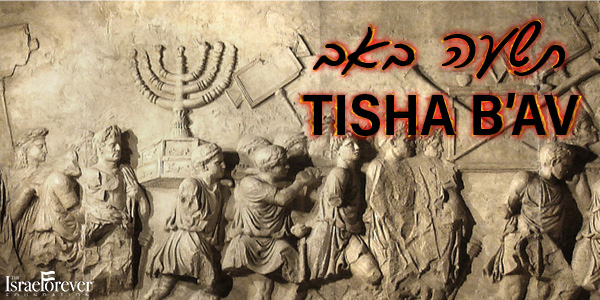Shabbat Talks - Tisha B'Av

Tisha B’av, the 9th day of the month of Av (Jewish calendar) is the day when both the first and second Temples were destroyed, the first by the Babylonians in 586 B.C.E.; the second by the Romans in 70 C.E.
Tisha B’Av is a day of mourning and considered the saddest day in the Jewish calendar. It is a day of mourning and misery, a day to grieve what was lost and the suffering that was caused and contemplate what must be learned from the mistakes of the past. On this day, religious Jews fast and observe other prohibitions to emphasize the sadness of the day. When Tisha B’Av falls on Shabbat the fast is observed beginning from the end of Shabbat.
According to Jewish tradition, five calamities occurred on Tisha B’Av that warrant fasting:
- The lack of faith of the Jews who upon return of the 12 Spies from scouting out the Land of Canaan, chose to believe the 10 spies who reported that the land promised by G-d would be impossible to settle.
- The destruction of the First Temple (586 B.C.E.)
- The destruction of the Second Temple (70 C.E.)
- The Roman crushing of the Bar Kochba revolt and subsequent destruction of the city of Betar where over over 500,000 Jews were killed.
- The plowing under of of the site of the Temple and the surrounding area following the Bar Kokhba revolt (135 CE)
Over time, Tisha B’Av has been expanded to encompass mourning for all the tragedies of Jewish history including the Spanish inquisition, repeated expulsion of Jews from European countries, the Holocaust and more.
While Shabbat is a joyous time, set aside for rest and separation from the difficulties of life, it is also an opportunity to increase our spiritual awareness through contemplation of the challenges and tragedies of Jewish history and where we are now in relation to them.
As you settle around the Shabbat table this week, we invite you to reflect on the importance of the holy day of Tisha B’Av.
LET'S TALK!
- The ancient Jewish Temple in the heart of Jerusalem was destroyed almost 2000 years ago. What relevance do you think Tisha B’Av has to Jews today?
- Why is Tisha B’Av a fast day? What other fast days are there in Judaism? What is the difference between fasting on Tisha B’Av and fasting on Yom Kippur?
- Do you think expanding Tisha B’Av to encompass other tragedies in Jewish history was a good idea? If so, why? If not, why not? What do you is the benefit of reflecting on past Jewish tragedies?
- Tisha B’Av also commemorates the report of the spies on the land of Israel in which Moses sent 12 spies to survey the land and 10 of them advised not to settle the land given to them by G-d. Do you believe that part of the tragedies that Jews experience is born out of a lack of faith?
- Our sages teach us that the Temple was destroyed due to “sinat chinam,” baseless hatred. In other words, the Temple was not destroyed because our ancestors were attacked by external enemies but rather the attack of our enemies was successful because of baseless hatred from within, the hate of brother against brother, Jew against Jew. What do you think of the concept of baseless hatred vs hatred that has a base? What does the explanation of our sages tell us about the importance of Jewish unity?
- Can you find the concept of “sinat chinam” in modern interactions between Jews? Is it the hatred of our enemies or hatred from within that is our biggest obstacle today? How can we heal modern sinat chinam?
- What is the connection between commemorating Tisha B’Av and protecting Israel as the only Jewish State?
- What can you learn from Tisha B’Av on a personal level?









